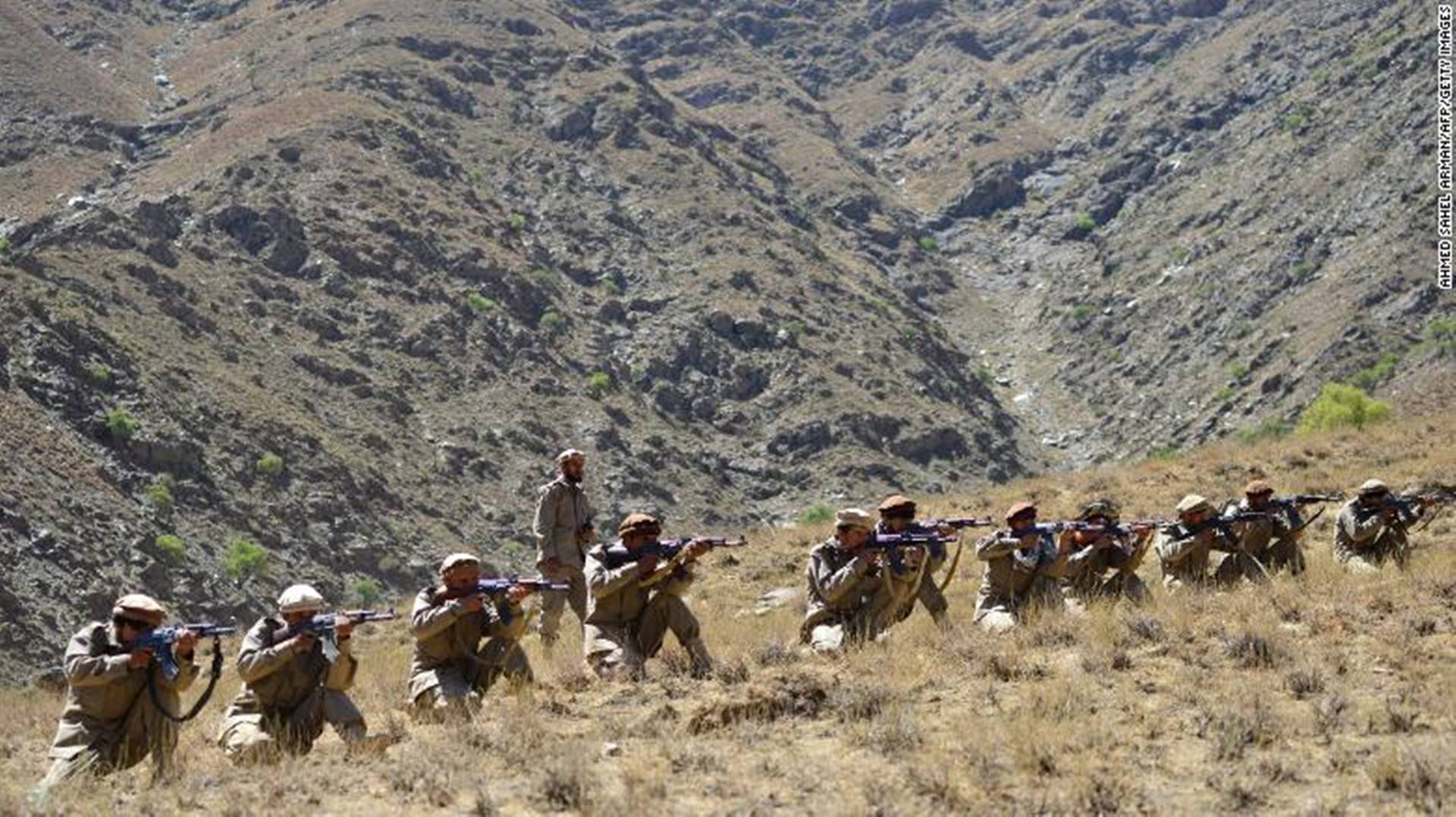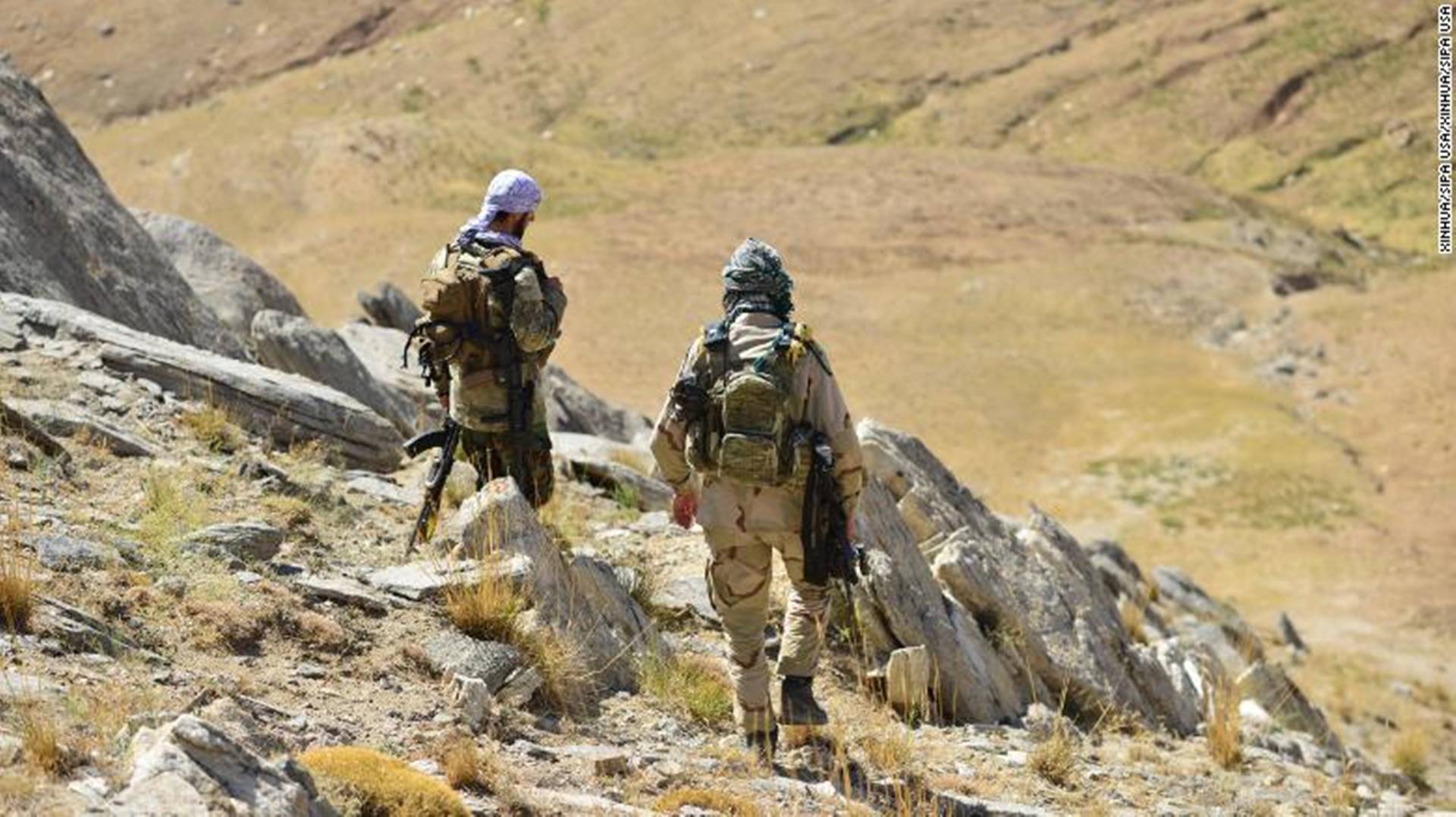Heavy clashes erupted Thursday night around Afghanistan’s northern Panjshir Valley between Taliban fighters and an anti-Taliban group, according to a source within the group

Panjshir Valley, a mountainous, inaccessible region north of Kabul, is the last major holdout against Taliban rule and has a long history of resisting the insurgent group.
Sporadic fighting between the Taliban and the National Resistance Front (NRF) has continued for two weeks now. The Taliban have been massing forces in and around Panjshir province in recent weeks and said on Monday they had captured three districts in the valley.
The overnight clashes between the Taliban and the National Resistance Front of Afghanistan (NRF) started late Thursday and were very intense, said the NRF source.
Goodbye Afghanistan – After Nearly 20 Years, Last US Troops Leave Kabul
“They (Taliban) are using their last power to get in, but clashes are still ongoing,” the source added.
Earlier on Thursday, Fahim Dashti, an NRF spokesperson, said in an audio message that the Taliban lost 40 of their forces in their ongoing attempts to enter Panjshir. Ali Nazary, another spokesperson from the group, said Thursday that the Taliban had also lost a number of heavy equipment and weaponry that had been destroyed.
We have not independently verified the Taliban casualties.
Separately, a Taliban source provided videos purportedly of fighting and the aftermath. We could not immediately verify the location or when the videos were filmed.
‘Didn’t need to die’: the US seeks answers after Kabul massacre
On Wednesday, a Taliban leader called on Panjshiris to accept an amnesty and avoid fighting but acknowledged that negotiations had thus far yielded no result. He said the situation “should be resolved peacefully,” but did not directly address the claims of renewed fighting and casualties.

The Panjshir Valley is the epicenter of Afghan guerrilla warfare and has long withstood foreign occupation, from the British Empire’s army to Soviet forces and the Taliban.
The rugged, inaccessible landscape plays a part in its defensive success, giving local forces an advantage over would-be invaders.
After the USSR, which controlled Kabul and large swaths of the country in the 1980s, withdrew from Afghanistan in 1989, various factions of mujahedeen — or Islamic holy warriors — split into groups, fighting for control of the country.
Afghanistan: How much opium is produced and what’s the Taliban’s record?
The Northern Alliance — now a main component of the NRF — was soon formed. Led by Ahmad Shah Massoud, the group managed to keep the Panjshir Valley free of Taliban influence. Massoud led an anti-Taliban offensive until he was assassinated by al Qaeda operatives two days before the September 11, 2001 attacks.
The coalition, and the broader NRF, are now led by Massoud’s son, Ahmad Massoud, who has vowed to continue the fight against the Taliban in the wake of their near takeover of Afghanistan.
Massoud and the NRF are now gathering anti-Taliban forces in the Panjshir Valley, which include local resistance forces as well as remnants of the former Afghan army.
People fleeing the Taliban, including the former Afghan Vice President, Amrullah Saleh, have also sought refuge in the Valley.
“The Taliban have not changed, and they still are after dominance throughout the country,” Massoud told CNN in an interview on Wednesday. “We are resisting dominance, intolerance, and oppression brought by one political force over the majority of the population that does not support them.”
He added that he and the NRF were still trying to negotiate with the Taliban — but so far, that dialogue “hasn’t resulted in anything tangible.” Talks have been taking place in the city of Charika, the capital of the neighboring Parwan province.
“Negotiations have their limits,” he said, quoting a prominent Prussian military general. “War is the continuation of politics, and if we face aggression we will be forced to fight and launch resistance to defend our land, people, and values.”
Napomena o autorskim pravima: Dozvoljeno preuzimanje sadržaja isključivo uz navođenje linka prema stranici našeg portala sa koje je sadržaj preuzet. Stavovi izraženi u ovom tekstu autorovi su i ne odražavaju nužno uredničku politiku The Balkantimes Press.
Copyright Notice: It is allowed to download the content only by providing a link to the page of our portal from which the content was downloaded. The views expressed in this text are those of the authors and do not necessarily reflect the editorial policies of The Balkantimes Press.
